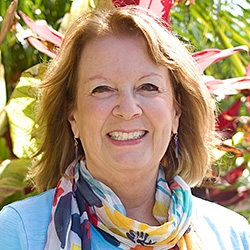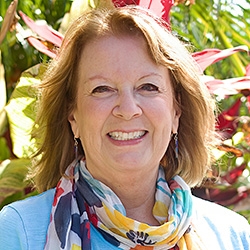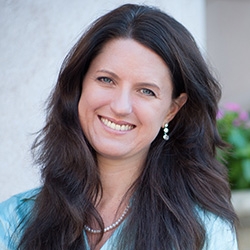
NVC Resources on Compassion
-
Join CNVC Certified Trainer Arnina Kashtan as she explores enemy images to increase your capacity to embrace life more fully. Free yourself from the “us-them” paradigm and experience true compassion for the people whose actions most trouble you.
-
Ever wish you knew how you might experience more choice when you've been triggered, instead of being trapped in old habits and unmet needs? Wish you could REALLY heal old internal messages that tell you you're not good enough… not loveable… or not deserving? Join veteran CNVC Certified Trainer, Mary Mackenzie, for this 6-session course designed to deepen your ability to connect with self and heal your past through the process of Self-empathy.
-
Join Miki as she covers a lot of territory, defining leadership, helping us lead when we're not in the leadership chair, showing us how to have power in every moment and engage our fear instead of let it run us. Get some powerful leadership tools you can put to use today.
-
Trainer Tip: We all want to be valued in our totality, to be loved even when we make mistakes. Wouldn’t we also like to offer this to ourselves? Compassion is about seeing the humanness in everyone, including ourselves. One way to express compassion is to remember your entire relationship and history of love with someone as a whole, rather than focusing on one disappointing incident.
-
In this course recording, you'll encounter new abilities and learn how to collaborate effectively from WITHIN a team. You'll be invited to build on interpersonal relationships, and branch out into the exciting challenges present when people work together toward a shared purpose.
-
The human needs that we all share are the foundation of the Nonviolent Communication (NVC) process because it is in connecting to needs that we find inner freedom, empowerment and compassion.
-
In order to bring in more nonviolence into the world, we need to take our own needs seriously and recognize that no amount of seeing someone’s innocence would mean putting up with more of their harmful behavior. We need to disentangle compassion towards another from the willingness to tolerate more harmful actions. At times this means finding enough self-love, support, or clarity, to take decisive action. Read on for more.
-
In the "obnoxious stage" we care for our needs in a way that doesn't respect others' needs. In the "emotional liberation" stage we fully care for others' needs as much as our own—while being free of fear, guilt, shame, or obligation. Often NVC training teaches us how to achieve the latter stage without the former. For greater compassion we can be more rigorous in how we talk about “responsibility", impacts and interdependence.
-
One NVC principle is "stimulus vs cause" - one may be the stimulus but never the cause of another's feelings. When we're upset this principle can help us express pain without blame. However, when others are upset it's easy to slip into blaming them using this principle. Instead, we can hear their pain with care and heartfelt mourning - without guilt nor defensiveness, and whether or not we agree. All this is important if we're sincerely applying compassion. Read on for more.
-
Yvette Erasmus shares practices to help us develop a regulated nervous system. We all get hijacked and triggered at some point. When that happens we can travel a blame and shame road or we can greet ourselves with graciousness and self compassion.











